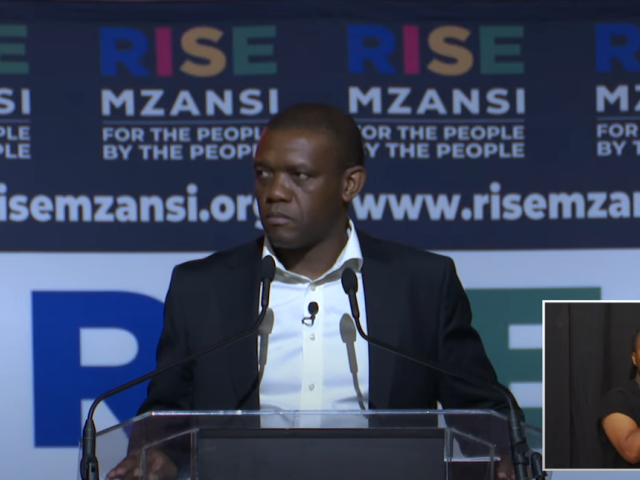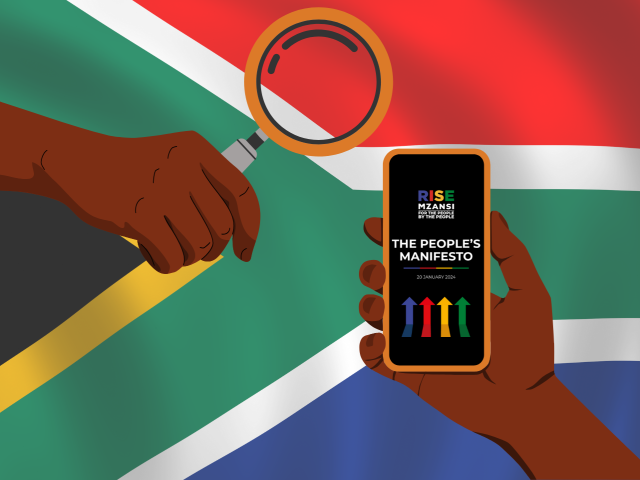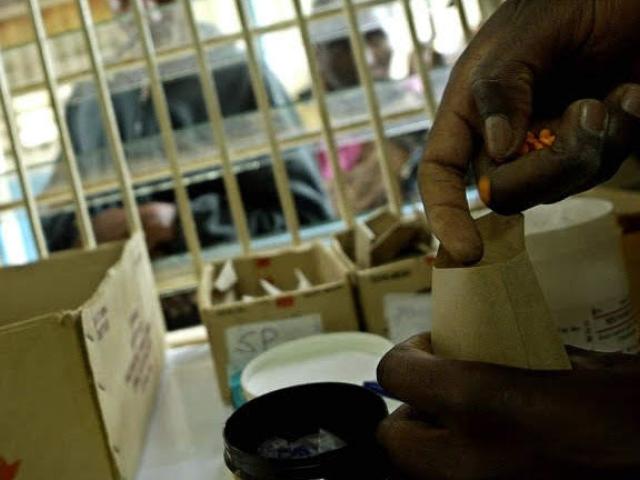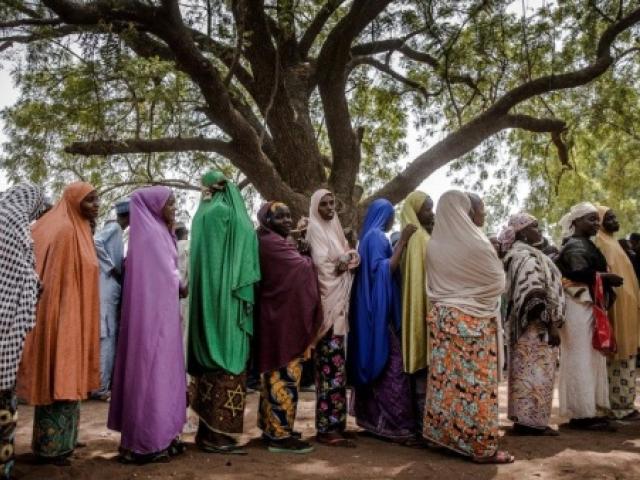- The figure that 1.9 million Kenyans suffer from depression is widely cited, and can be traced to reports from a US-based global health research centre, whose most recent estimates for the country are very similar.
- While the available data backs up this part of Kageni’s claim, it is based on a nearly 20-year-old WHO survey and a limited in-country survey from 2013. Experts say it is most likely an underestimate.
- There is no available evidence to show Kenya ranks either fourth in Africa or ninth globally. Experts say better data is needed - the country for example has not done a national study on any mental illness.
A popular Kenyan radio show host castigated men for keeping their troubles to themselves, and women for not offering a listening ear to them.
“Ladies have got a support system, a group of people they can go and sit with and tell everything. Who is that for Kenyan men?” said Maina Kageni on his Classic 105 FM show in July 2021.
Kageni then zeroed in on depression in the country.
“So, the statistics are horrifying, [Kenya is] fourth in Africa [and] ninth globally when it comes to depression, it’s crazy,” he said, not for the first time that morning.
The station later posted on Facebook and Twitter that Kenya actually ranked fifth and not fourth in Africa for depression, and then gave the number of cases as 1.9 million.
Is this all accurate?
Africa Check contacted Classic 105 for evidence for these claims. We will update this report with their response.
The figure of 1.9 million people suffering from depression in Kenya has been widely used. Institutions from media houses and research organisations to blogs have attributed the statistic to a World Health Organization (WHO) report.
Published in 2017, this was titled “Depression and Other Common Mental Disorders”. We extracted data from the report using Tabula, an open-source tool. This showed Kenya had an estimated 1.95 million cases of depression.
The report said it had used data from the global burden of disease study 2015. The study is coordinated by the Institute for Health Metrics and Evaluation or IHME, an independent global health research centre at the University of Washington in the US.
We asked the WHO’s mental health unit if newer data was available. Dr Mark van Ommeren, the head of the unit, directed us to the global burden of disease 2019 estimates.
These indicated that Kenya had 1,844,799 people suffering from depression in 2019, ranking 29th out of the 204 countries and territories surveyed.
How was this measured?
According to the 2019 burden of disease study, estimates for depression in Kenya are derived from two studies. These are the Kenya World Health Survey 2003, published by the WHO, and a study on common mental disorders in Kenya’s Nyanza province, published in 2013.
The world health survey interviewed 4,343 individuals and found that 5.4% had received a diagnosis for depression in the previous twelve months. Some 4% said they had been screened or treated for depression in the two weeks preceding the survey.
The Nyanza study interviewed 1,157 people. It found that 10.3% reported having common mental disorders in the previous seven days. Of these, 1.7% had mixed anxiety and depression while 0.9% had experienced a depressive episode.
The global burden of disease study further used two models to inform its estimates.
Van Ommeren acknowledged the estimates would be improved by more current data. “Certainly more up-to-date data would be great to have and self-reporting is a limitation though this has been adjusted for in the estimates," he said.
Experts say the number is underestimated
Mary Bitta is a doctoral candidate at Oxford University’s department of psychiatry in the UK. She told Africa Check that when other studies in Kenya that involve population-based surveys were considered, the 1.9 million figure “is likely an underestimate”, even if these studies may also have shortcomings.
For example, a 2012 study of 876 people in Maseno, Kisumu county found 6.1% had suffered mixed depression and anxiety in the preceding seven days. This, it said, was “ a very common presentation”.
A key challenge with depression was that few patients were ever diagnosed, Bitta said. The “majority of patients will not seek care at all and there isn't an established community detection strategy for mental disorders in Kenya”.
Bitta said that the few who managed to seek care often presented to facilities with other complaints. “Unfortunately most frontline workers are not trained to detect depression. So patients will be treated for other conditions but not depression,” she said.
Bitta said the most credible data source would be “well designed population-based surveys, which although are time consuming and expensive, would provide reliable estimates”.
Kenya has not done any national survey
Dr Lukoye Atwoli is a professor of psychiatry and the dean of the Aga Khan University’s Medical College in East Africa, based in Nairobi.
Part of the problem was the lack of national data, he told Africa Check.
“We have never done a national survey of any mental illness, so we cannot estimate accurately the pattern or prevalence of any specific mental illness.”
“What we have are estimates from small studies, some hospital-based and some community-based, but in a small population that give you an indication that probably 15% to 25% of people that are interviewed in such surveys would have depression in their lifetime.”
Atwoli cited a 2017 study in Mosoriot, Nandi county, that found nearly half the respondents (45.5%) had suffered a mental disorder in their lifetime, while 12.6% had suffered a major depressive disorder. (For definitions, read here.)
“People with all sorts of symptoms have depression and they have no idea. So numbers anyone would be giving in the range of one million would be obviously an underestimate,” he said.
Atwoli also said government reports had tended not to capture detailed data. “Historically our hospitals have not had the typical discrete mental disorders being reported. In many cases you only have one item that says ‘mental illness’ which is not useful.”
This was being corrected, he said.
The available data technically backs up the radio show’s claim about the number of people suffering from depression. But drawing on the acute lack of data and the opinions of experts, we rate this figure as significantly understated.
The claim that Kenya is fourth in Africa “when it comes to depression” previously made it into a 2020 report by an official task force on mental health, and was also published by NTV Kenya, a national TV station.
But the country’s supposed ranking has varied according to various media, sometimes in fifth and sometimes sixth place.
The WHO’s 2017 “Depression and Other Common Mental Disorders” report that is often cited ranked Kenya sixth of 183 countries for its cases of depression, which it estimated at 1.95 million.
This report relied on 2015 data from the IHME’s global burden of disease study. Newer data from the institute estimates that Kenya had a little over 1.84 million people suffering from depression in 2019.
This placed the country 29th of the 204 countries and territories surveyed.
Percentage of those suffering gives better picture
The data provides for total cases as well as the percentage of a country’s population suffering from depression, so we asked the WHO’s Van Ommeren which measure was better for ranking countries.
It was “certainly” the percentage of a country’s population, he said. This is because it gives a better picture of a country’s disease burden.
The WHO’s 2017 report estimated that 4.4% of Kenya’s population was affected by depression in 2015. This placed the country joint 90th of 183 countries, and eighth in Africa.
The situation was similar in 2019, the year for which the data is most recent. The percentage of Kenyans suffering from depression was estimated to be 3.8%.
This ranked the country 98th position of 204 countries worldwide, and 19th in Africa.
Based on the more useful measure of the share of its population suffering from depression, Kenya is not fourth in Africa nor ninth in the world.








Add new comment